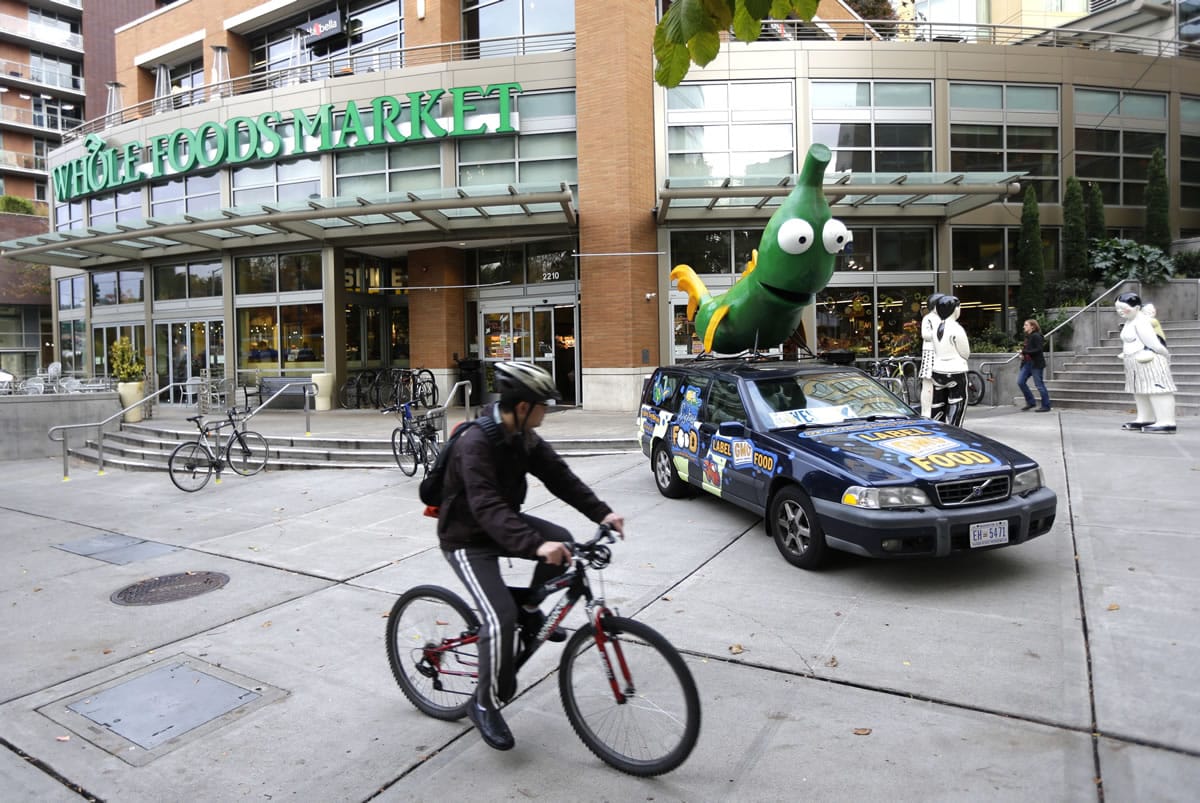SEATTLE — A Washington state ballot measure requiring mandatory labeling of genetically engineered foods is failing in early returns.
The campaign over Initiative 522 has been one of the costliest initiative fights in state history, drawing millions of dollars from out of state.
Early polling showed voters favored the measure. But a barrage of TV and radio spots financed by a food industry group and five biotechnology companies has helped narrow the gap.
The measure was failing 45 percent to 55 percent as the first votes were being counted Tuesday night.
Voters in Washington, which is entirely vote-by-mail, had to postmark their ballots by Tuesday, so final election results may not be known for days.
“This is far from over and we have several days of vote counting ahead,” said Delana Jones, campaign manager for the Yes on 522 campaign, noting that about 300,000 projected votes in King County, where the measure showed strong support, have not yet been counted. “I’m cautiously optimistic.”
If voters approve I-522, Washington would be the first state to put in place labeling requirements for genetically modified foods.
The opposition has raised $22 million to defeat I-522 and had spent much of that by Election Day. Hefty contributions came from Monsanto Co., DuPont Pioneer and the Grocery Manufacturers Association, which collected millions in donations from the nation’s top food companies, including Nestle SA, General Mills Inc., Coca-Cola Co. and PepsiCo Inc.
Many of those companies mounted a $46 million defense to defeat a similar food-labeling measure in California last year.
Supporters of I-522 have raised about $7.9 million, backed by Dr. Bronner’s Magic Soaps, natural food companies and consumer groups.
Only about 6 percent of the roughly $30 million raised by both sides has come from within Washington state, according to campaign finance reports.
Supporters say consumers have the right to know what’s in the food they buy, while opponents say the measure would lead to higher food costs.
Under I-522, seeds or foods containing GMO ingredients offered for retail sale would require a label starting in 2015. Some foods are exempt, including restaurant food, alcohol, certified organic food and medicine.
Most GMO crops such as field corn and soybean are used for animal feed or as ingredients in processed foods including breakfast cereal, potato chips, baked goods and sodas.



